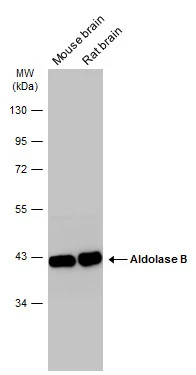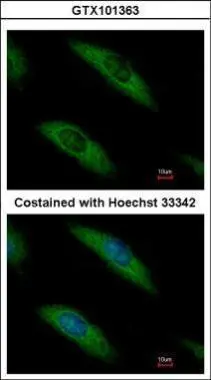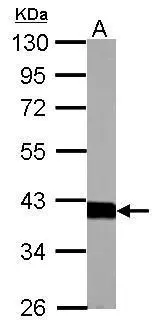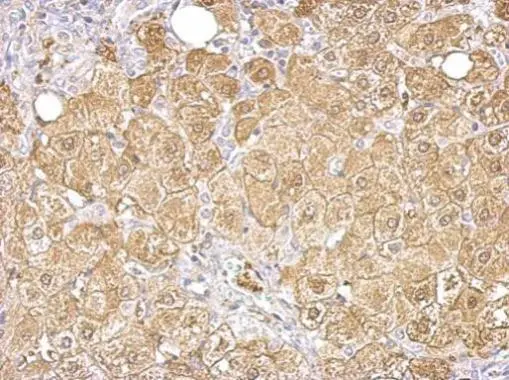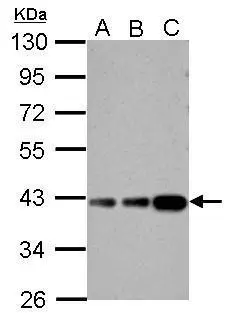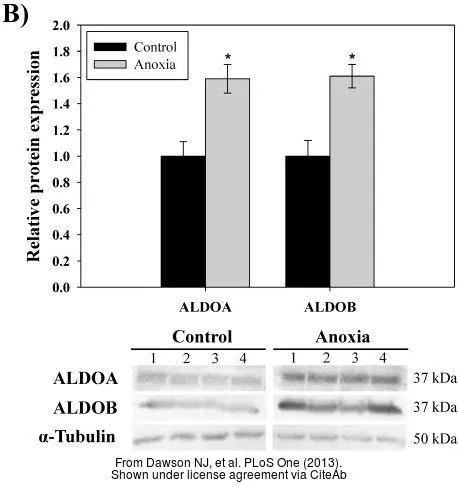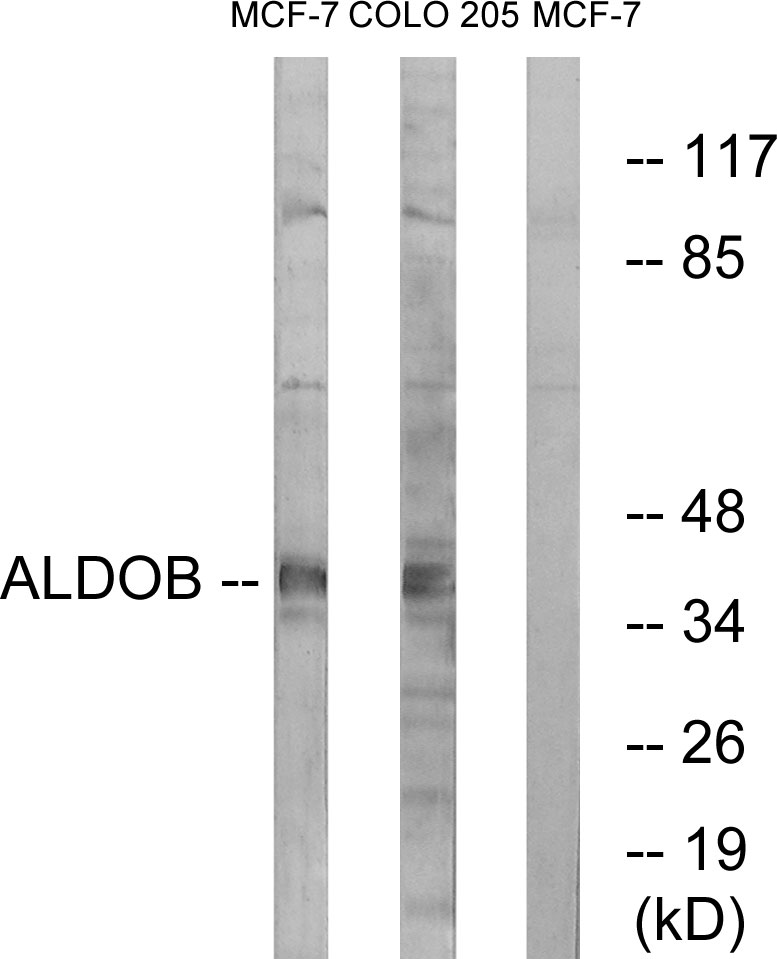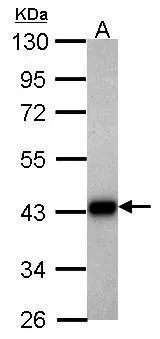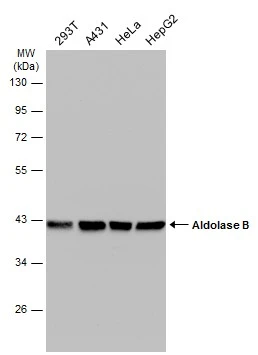
Various whole cell extracts (30 μg) were separated by 10% SDS-PAGE, and the membrane was blotted with Aldolase B antibody (GTX101363) diluted at 1:1000. The HRP-conjugated anti-rabbit IgG antibody (GTX213110-01) was used to detect the primary antibody.
Aldolase B antibody
GTX101363
ApplicationsImmunoFluorescence, Western Blot, ImmunoCytoChemistry, ImmunoHistoChemistry, ImmunoHistoChemistry Paraffin
Product group Antibodies
ReactivityHuman, Mouse, Reptile, Rat
TargetALDOB
Overview
- SupplierGeneTex
- Product NameAldolase B antibody
- Delivery Days Customer9
- Application Supplier NoteWB: 1:500-1:3000. ICC/IF: 1:100-1:1000. IHC-P: 1:100-1:1000. *Optimal dilutions/concentrations should be determined by the researcher.Not tested in other applications.
- ApplicationsImmunoFluorescence, Western Blot, ImmunoCytoChemistry, ImmunoHistoChemistry, ImmunoHistoChemistry Paraffin
- CertificationResearch Use Only
- ClonalityPolyclonal
- Concentration0.09 mg/ml
- ConjugateUnconjugated
- Gene ID229
- Target nameALDOB
- Target descriptionaldolase, fructose-bisphosphate B
- Target synonymsALDB, ALDO2, fructose-bisphosphate aldolase B, aldolase 2, aldolase B, fructose-bisphosphatase, aldolase B, fructose-bisphosphate, liver-type aldolase
- HostRabbit
- IsotypeIgG
- Protein IDP05062
- Protein NameFructose-bisphosphate aldolase B
- Scientific DescriptionFructose-1,6-bisphosphate aldolase (EC 4.1.2.13) is a tetrameric glycolytic enzyme that catalyzes the reversible conversion of fructose-1,6-bisphosphate to glyceraldehyde 3-phosphate and dihydroxyacetone phosphate. Vertebrates have 3 aldolase isozymes which are distinguished by their electrophoretic and catalytic properties. Differences indicate that aldolases A, B, and C are distinct proteins, the products of a family of related housekeeping genes exhibiting developmentally regulated expression of the different isozymes. The developing embryo produces aldolase A, which is produced in even greater amounts in adult muscle where it can be as much as 5% of total cellular protein. In adult liver, kidney and intestine, aldolase A expression is repressed and aldolase B is produced. In brain and other nervous tissue, aldolase A and C are expressed about equally. There is a high degree of homology between aldolase A and C. Defects in ALDOB cause hereditary fructose intolerance. [provided by RefSeq]
- ReactivityHuman, Mouse, Reptile, Rat
- Storage Instruction-20°C or -80°C,2°C to 8°C
- UNSPSC41116161

